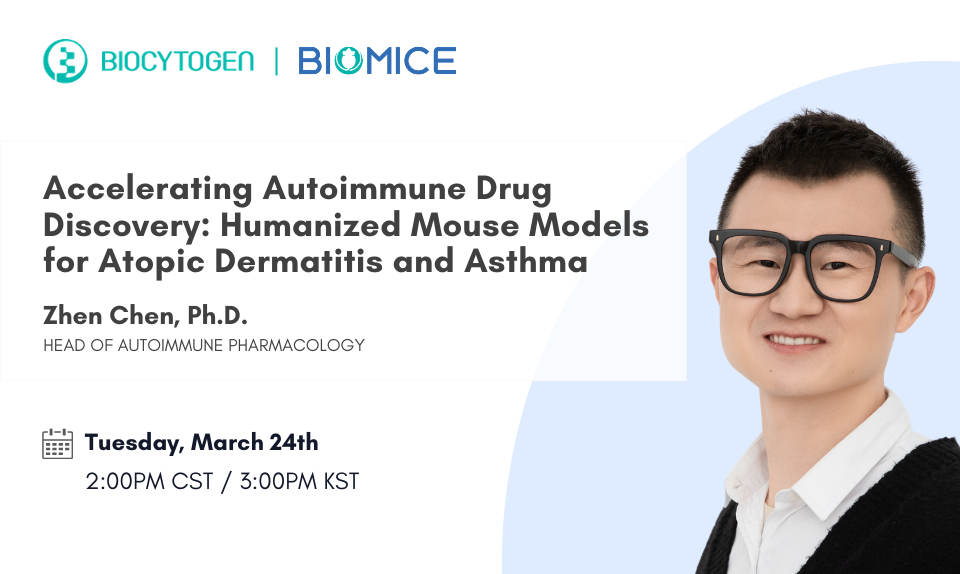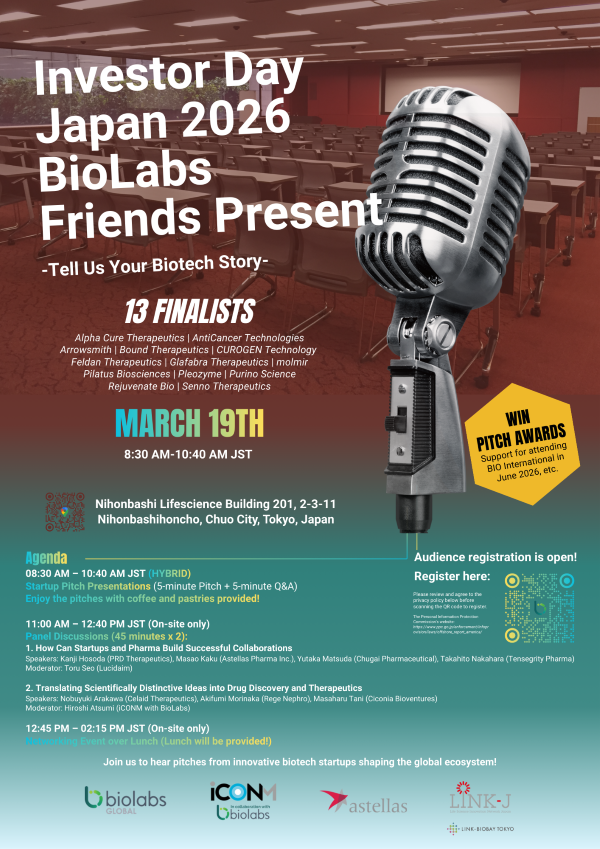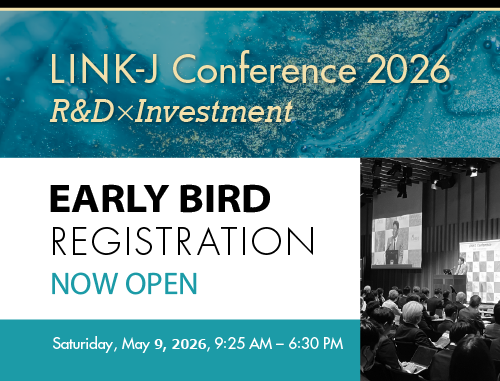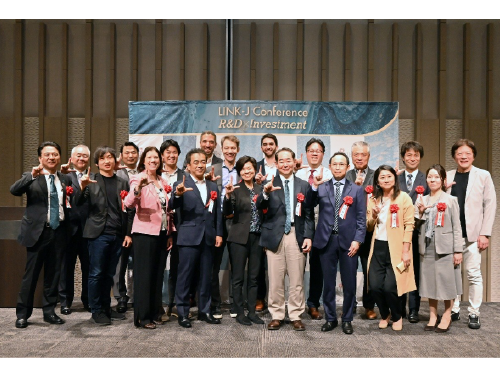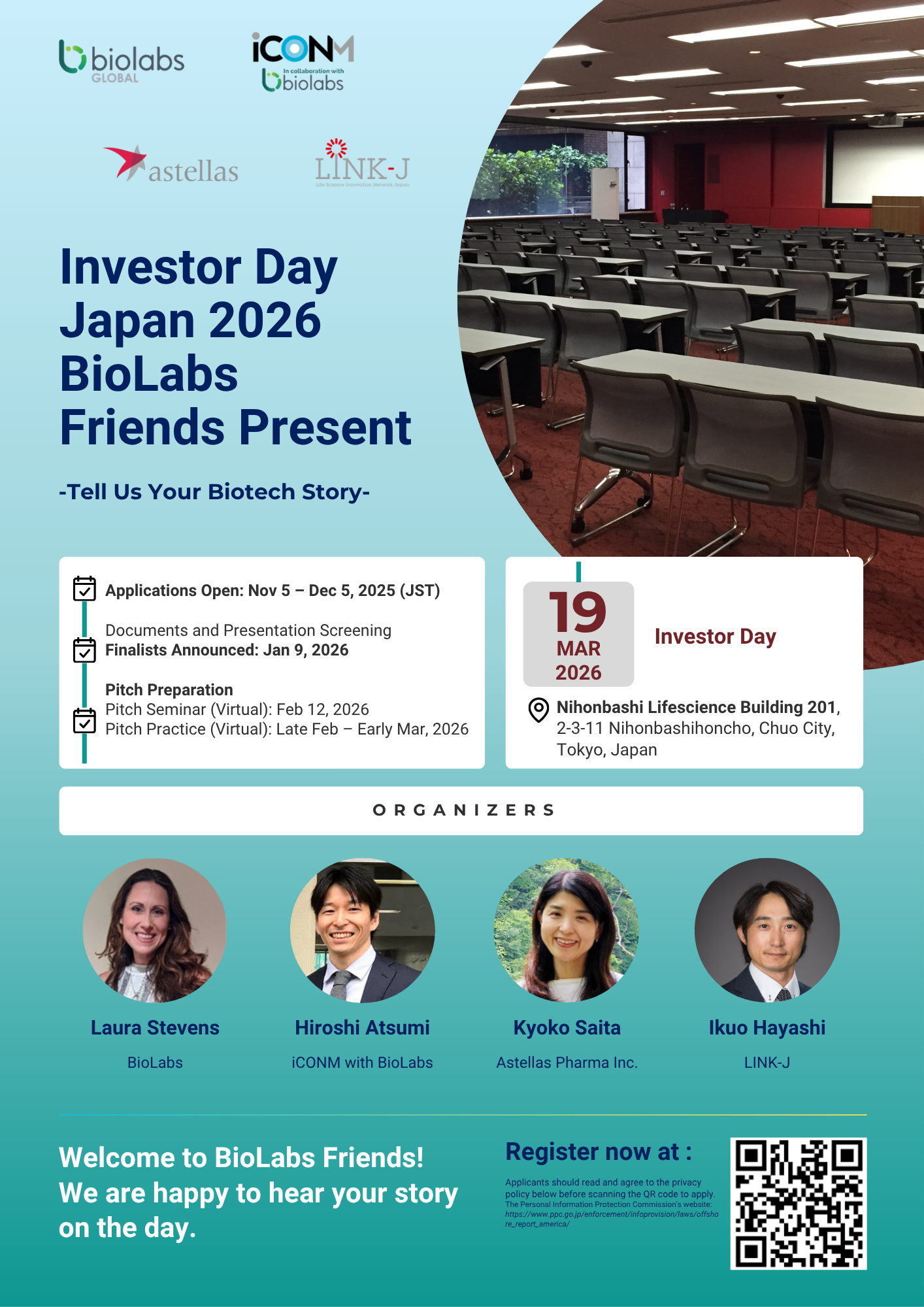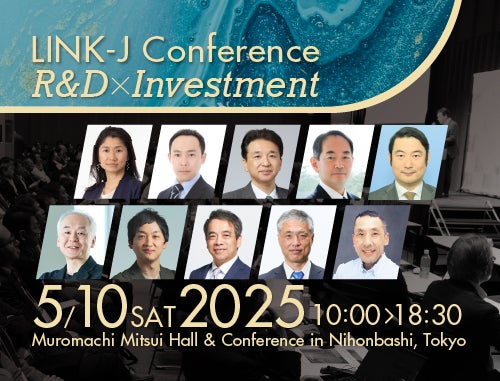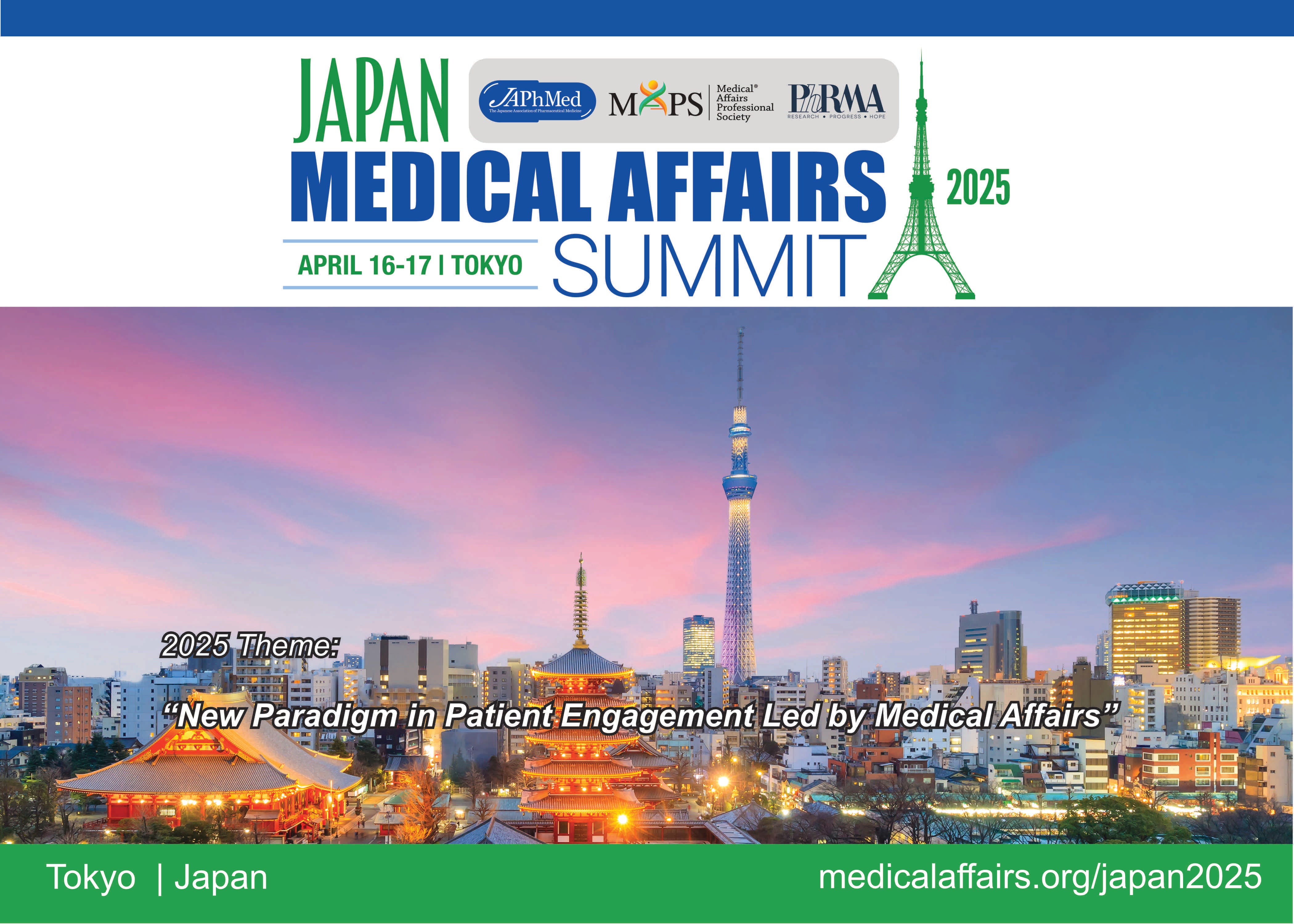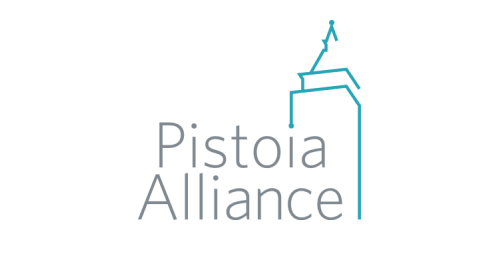
Dr. Kagimoto grew up in a household where both parents were doctors, and got an up-close glimpse of both the medical potential and limitations. He decided launch his own business to develop new pharmaceutical solutions. Dr. Suzuki's life work is curing cancer and preventing dementia. She aims to improve the quality of medicine by providing the right information to medical setting. While these two individuals come from different background and are engaging in differing types of work, their steadfast commitment to bring new drugs to patients immediately is a common goal. In this interview, we sat down with the two of them to learn more about their careers, what they emphasize in the process of drug development, future areas of interest, and what the Japanese sector needs to do to improve industry-academia alliances.
Shifting from a position on a medical faculty to new drug discovery
――Could you please tell us a bit about yourself?
Kagimoto My father, mother, and sister are doctors. I studied at the Faculty of Medical Sciences of Kyushu University, and I took a residency at an ophthalmology clinic after graduation. Having a whole family of doctors gave me many opportunities to see not only the tremendous potential medicine, but also its inherent limitations. During my residency, I became keenly aware of the latter. While being a doctor is a tremendous position, it involves utilizing demonstrable diagnostic modalities to prescribe medication and carry out surgery. Yet there are many illnesses which there is no existing modality or drug, and rendering them untreatable. Even in the ophthalmology field, there are countless intractable illnesses. This aroused me to contribute society through drug development. After my residency, I founded Acumen BioPharma, a university-launched startup focused on development of auxiliary materials for eye surgery.
――Please tell us more about the launch of your first company.
Kagimoto I was too young at the time and didn't know about launching business, but I was lucky to have like-minded colleagues, and we gradually raised the funding we needed. The domestic market for surgery aids is small, so we developed our product for the global market. The phase III clinical trials were conducted in the US and India. I experienced many failures due to my lack of experience as a business manager. We went through ups and downs, such as the 2007-2008 financial crisis. However, through joint development with DORC (Dutch Ophthalmic Research Center International), an ophthalmic surgery products manufacturer in the Netherlands, we succeed in making our product into reality.
Then I decided to launch a second company. That is Healios K.K., which I work as the president. The company is focused on developing and commercializing practical uses of iPS cells (artificial pluripotent stem cells). In 2015, we issued shares to the public. We are currently conducting pivotal trials in the acute phase of cerebral infarction and for acute respiratory distress syndrome (ARDS). At my first company, we required the support from another company in the final steps of gaining approval and then manufacturing and selling the product. For this venture, it looks like we are on track to achieve my long-held goal of conducting everything from R&D on through to sales in-house.

――Dr. Suzuki, you studied medicine in England, correct?
Suzuki I studied breast cancer at University College London in England and acquired a Doctor of Medicine and I became a postdoctoral researcher, However, due to loss of my friend by the cancer, I decided curing cancer completely would be one of my life goals. I reached that medicine seemed to be the right one for me, so I felt joining a pharmaceutical company would be the shortest route to achieving that. As an employee at a pharmaceutical company, I saw the realities of dementia treatment through field work and saw how much these patients suffered. I thus took on the prevention of dementia as another long-term goal. We are still only halfway there, but I am keeping that spirit of never giving up firmly in mind as I go forward.
――You are currently acting as a director of the medical affairs division at Janssen Pharmaceutical K.K. Could you tell us more about what this job?
Suzuki Medical affairs involves providing product information and related ailments information. Today, thanks to the excellent national insurance system and drug approval review system, people in Japan can obtain the latest and best treatment. However, this does not necessarily mean that the best medical care actually reaches all patients. One reason behind this is the information divide. Therefore, we strive to provide the right information to the healthcare field so that doctors and patients can choose better treatment options. In addition, if the information which they're seeking is not yet available, we also conduct large-scale observational research to build evidence in clinical practice.
Achieving the speed and efficiency needed for modern-day drug discovery through innovative approaches
――The medical sector is changing by leaps and bounds every day. What do you think about the future of pharmaceuticals development?
Kagimoto Our goal is to build a platform allowing for the development of multiple new drugs simultaneously. Both in terms of our long-term growth as a company and investment efficiency, and in terms of Japanese competitive advantage at large, we want to cultivate an industry where we can produce multiple new drugs from a single cell base. To that end, in terms of iPS cells, we need very high quality cells and the technology for gene editing, as well as universal cells that will not be rejected by the body's natural immunity. In addition, this requires building up people with the training and expertise in the production and management of, and ability to obtain approval for, multiple cellular products. We have begun putting in place a platform for people and expertise that will allow us to meet these needs. Yet many players around the world are building similar platforms, with a variety of different technologies emerging. I think one ongoing issue will be developing the alacrity to bring the latest information in-house in a timely fashion.
Suzuki Today, I believe that drug discovery is developing through computers' ability to process information faster and more efficiently. At that point, the key is sharing data. Putting aside different takes on the matter of computing, we can safely say that no one really disagrees on the importance of sharing data for our mutual benefit. In our firm, we have made actual data on anti-dementia drugs which we discontinued clinical development available to the public widely. If we can achieve a world in which pharmaceutical companies' clinical data is always shared openly with researchers as a matter of course, it will lead to dramatic developments in the field of drug discovery.

Suzuki Two key topics in future of the medicine will be complete recovery, in which a condition is fully treated and persists without relapse for long periods of time, and fundamental treatment, in which the root of the ailment is treated. In recent years, we have seen the potential of disease modifiers, regenerative medicine, and gene therapy. Moreover, outer space has become a prevailing topic in future of the medicine. The universe has a variety of medical challenges that differ from terrestrial medicine, including strong radiation emitted from the sun; bone, muscle growth, and metabolic inhibition under weightlessness; and the influence of life in a narrow space on the mental state. However, we still do not fully understand even the basic physiology of the human body under weightlessness. In that sense, I expect outer space to be a treasure trove for medicine and new drug development.
Kagimoto That is a very interesting point. We are working with Yokohama City University's research lab which is jointly carrying out a project with the Japanese Aerospace Exploration Agency (JAXA). That project sees them bringing organoids (three-dimensional organ cultures grown in a test tube) to the KIBO module on the International Space Station and learn about organ development in a weightless environment. If we look back history, a change in thinking or a push from a totally different sector triggered paradigm shifts in the field of medicine. That freeform kind of thinking -- such as combining outer space with new drugs -- is vital.
What we require is "intuition" -- listening attentively, watching closely, and thinking deeply
――Do you have any advice for upcoming medical students or entrepreneurs?
Kagimoto New information is constantly entering to the medical field, and it's almost too much to keep up with. Yet even this vast amount of information will be obsolete in one day. Moreover, a lot of our day-to-day work will be replaced by artificial intelligence and other cutting-edge technology. This will trigger a change from an emphasis on the "volume" of information towards the ability to keenly select from among that information what is most relevant. In other words, it will lead to an emphasis on the right intuition and perspicacity to sort the wheat from the chaff.
Suzuki I strongly agree with that notion that qualitative sensibilities will come to the fore. Speaking information-wise, computers will act in a further auxiliary capacity to help in medicine. The changes being wrought by the coronavirus epidemic have led to the adoption of online screenings, among other changes in medical technology. Yet technology does not solves all problems. Key here is that sensibility or intuition to understand things.

Kagimoto According to Hirohisa Koyama, a chef of the Aoyagi restaurant in Kyoto which trained up three three-star Michelin chefs, traditional performing arts are a crucible for attention: watching closely, listening attentively, and thinking deeply. You eschew unnecessary distractions and sounds and focus on essential questions until you understand them to the fullest. People with a highly refined sensibility, it could be said, have trained themselves by focusing intensively on a particular subject. That experience equally applies to professional work, where those with high intuition will be increasingly relevant.
Suzuki In our a leadership program held internally by volunteers, I feel that people have different sensibilities. And what's important here is having these diverse types of people in one place together. One other required quality for people who develops drugsis empathy. It's important to realize that today a lot of people are suffering from illness and disease, and take the initiative to change this situation. That should be a driving source of energy which can lead to new relationships with others.

――Do you have any remarks you'd like to add about industry-academia partnerships in Japan?
Kagimoto The Japanese environment around entrepreneurship has really grown in recent years. It's much easier to get funding and support. We also simply need more people with an entrepreneurial spirit. It's not enough to found one company and call it quits. We need serial entrepreneurs. Naturally, your first company will involve a lot of mistakes and failures. But you can leverage that experience to grow as an entrepreneur. Personally, I think you should treat your first venture as about three years (that is, experiencing what it's like to launch) or six years (experiencing a full life cycle of a product or service), and then move on to your next challenge. Externalities can trigger necessity of changing, such as the coronavirus epidemic we are seeing now. You can interpret this as an opportunity to shake things up and try something new.
Suzuki Industry-academia collaborations in Japan have changed considerably. That being said, if I were to focus on specific problems in Japanese ecosystem, I would say that we still lag behind in terms of international collaboration. I often analogize this to rice-pounding ceremonies held by local neighborhood associations. They get together and make a nice product, but it doesn't leave their neighborhood. The goal here should be bringing those rice cakes to a wider audience -- to have that desire to, say, bring your town's rice cakes to children in Somalia. Yet people tend to get complacent with keeping things within Japan. For drug discovery, contributing to patients in the world, including in developing nations is indispensable. To that end, we absolutely need people who understand and collaborate the issues. I hope that organizations supporting industry-academia partnerships in Japan will also pave the way to greater international alliances in the life sciences and lead to more global collaborations in the future.
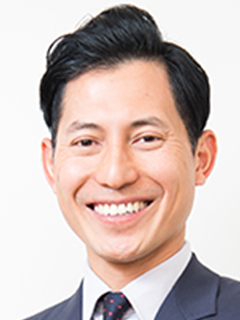 Tadahisa Kagimoto Graduate of the Faculty of Medical Sciences, Kyushu University. After working as an ophthalmologist, launched Acumen BioPharma Co., Ltd., aiming to commercialize an eye surgery aid discovered at Kyushu University. The product was approved for sale in Europe (and later the US) following phase III clinical trials overseas, and was brought to market. Founded Healios K.K. in 2011 as a venture focused on commercialization of regenerative medicine solutions. In 2012, became the firm's representative director and president. In 2015, the company was listed on the TSE Mothers index.
Tadahisa Kagimoto Graduate of the Faculty of Medical Sciences, Kyushu University. After working as an ophthalmologist, launched Acumen BioPharma Co., Ltd., aiming to commercialize an eye surgery aid discovered at Kyushu University. The product was approved for sale in Europe (and later the US) following phase III clinical trials overseas, and was brought to market. Founded Healios K.K. in 2011 as a venture focused on commercialization of regenerative medicine solutions. In 2012, became the firm's representative director and president. In 2015, the company was listed on the TSE Mothers index.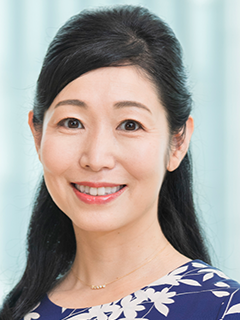 Rami Suzuki Director of medical affairs, Janssen Pharmaceutical K.K.
Rami Suzuki Director of medical affairs, Janssen Pharmaceutical K.K.Traveled to England at age 15, and eventually went on to obtain a doctor of medicine from University College London. After engaging in operations for a VC fund focused on the life sciences, joined Eisai Europe Limited, later transferring to the parent company Eisai Co., Ltd. While there, engaged in corporate acquisitions and the purchase and sale of development and IP rights. Joined Janssen Pharmaceutical K.K. in 2017. Currently leads its medical affairs division.
